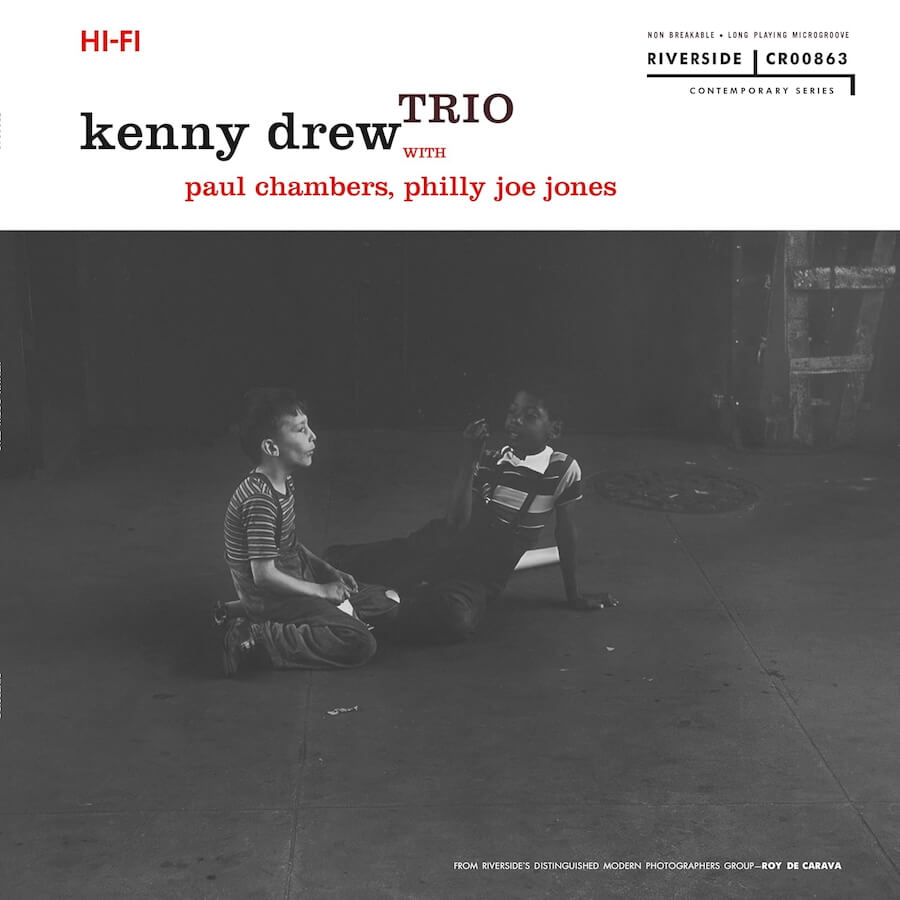Craft Recordings is rolling out another wave of Original Jazz Classics (OJC) 180-gram vinyl reissues, and—shockingly—this is one of those rare reissue campaigns that’s actually worth your money. The new batch isn’t filler—it’s AAA-cut, analog-first essentials like Kenny Burrell, Kenny Drew Trio, Sonny Criss’s Sonny’s Dream, and Wheelin’ and Dealin’ with Coltrane, Frank Wess, Paul Quinichette, and more.
Mastering comes straight from the original tapes—Kevin Gray handling most of it, with Ryan K. Smith on the Drew title—pressed at RTI, and dressed up in tip-on jackets.
Kenny Drew was born in New York City in 1928, started piano lessons at five, and came up through the High School of Music & Art in Manhattan. By 1950 he was recording with Howard McGhee, and in short order found himself playing with giants like Coleman Hawkins, Lester Young, Charlie Parker, and Buddy DeFranco. Through the ’50s, he balanced sideman work with leading his own sessions—most famously landing on Coltrane’s Blue Train in 1958.
Like many American jazz musicians of his era, Drew eventually crossed the Atlantic, moving first to Paris in 1961 and then settling in Copenhagen by 1964. While his profile dimmed in the States, he built a devoted following in Europe, frequently partnering with bassist Niels-Henning Ørsted Pedersen.
Drew himself admitted that leaving New York may have cost him exposure, but it also kept him sharp: Europe gave him the freedom to play in more varied contexts and the time to dig deeper into his own voice at the piano.
In hindsight, it wasn’t exile—it was escape from an American jazz machine that too often chewed up talent and spat it out.

Pianist Kenny Drew may have never gotten the spotlight he deserved—he was always orbiting the bigger names—but this 1956 trio session makes a convincing argument that history shortchanged him. With Paul Chambers on bass and Philly Joe Jones on drums, you’re not just getting backup players; you’re getting a rhythm section that defined an era and would go on to fuel Coltrane’s rise. Drew doesn’t just keep up—he drives, with an elegance and swing that feels effortless, and a restraint that’s more confidence than caution.
The set kicks off with a breathless “Caravan,” Drew pushing the trio like they’ve got somewhere dangerous to be. Then comes “Blues for Nica,” a smoky, slow-burn tribute to the Baroness herself, walking the line between class and grit the way only Drew could. What makes this record sting in all the right ways is how easily it shifts gears—firing on all cylinders one moment, pulling back into a sly, understated groove the next. At under an hour, it’s tight, purposeful, and leaves you wishing Drew had been given more chances to lead sessions like this.
This isn’t just a solid piano trio date—it’s proof that Drew belonged in the same conversation as his peers, even if history tried to file him under “supporting cast.”
If this one grabs you, the lineage is pretty clear—Herbie Hancock’s Maiden Voyage takes that same balance of sophistication and propulsion into deeper waters, while Horace Silver’s Song for My Father leans harder on groove and accessibility without dumbing anything down. And if you want the jagged, slightly dangerous cousin to Drew’s elegance, Monk’s Brilliant Corners will scratch that itch with all its sharp edges intact.
Craft’s reissue is a clean, no-nonsense pressing that nails the intimacy, pacing, and punch of Drew’s piano. The stereo separation between Drew, Chambers, and Philly Joe Jones is spot-on—clear enough to lock onto each player without turning it into some surgical, lab-coat listening session. The mix doesn’t shove the music in your face, but it doesn’t bury it in the back row either. It hangs right in that sweet spot where the trio feels a few feet away, just close enough to get your knee bouncing and make you lean forward like you’re eavesdropping on something you shouldn’t miss.
Where to buy: $41.99 at Amazon
